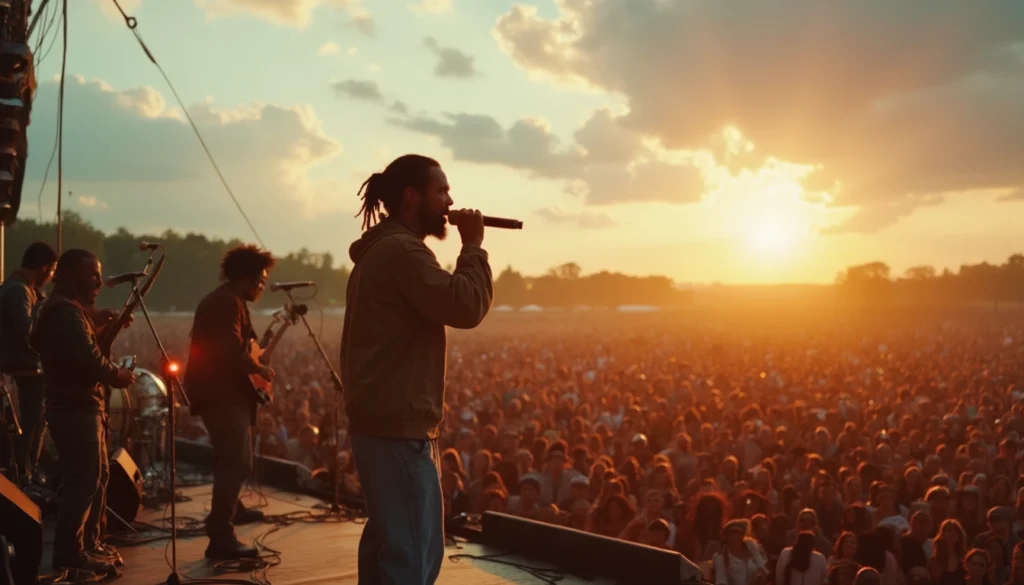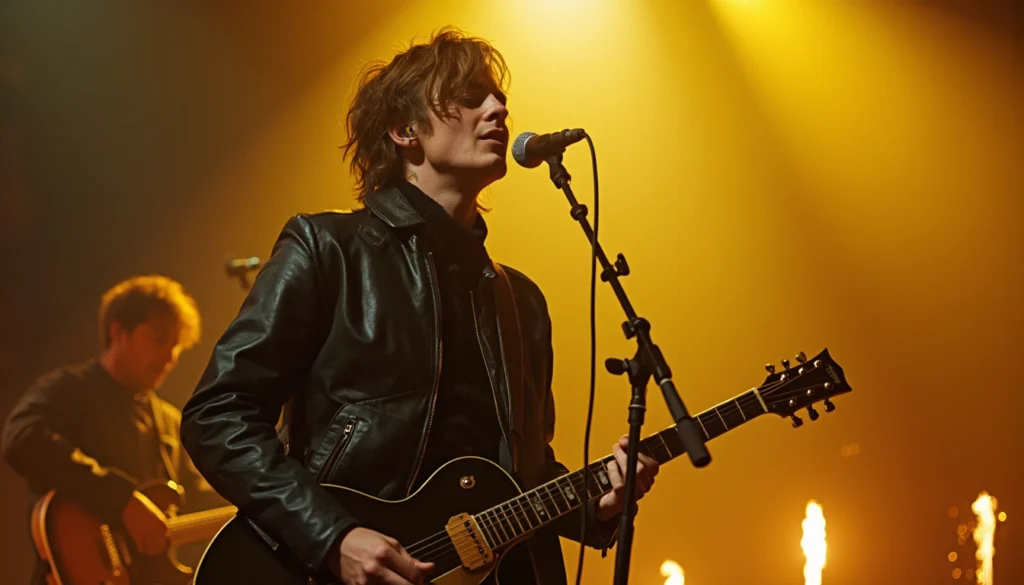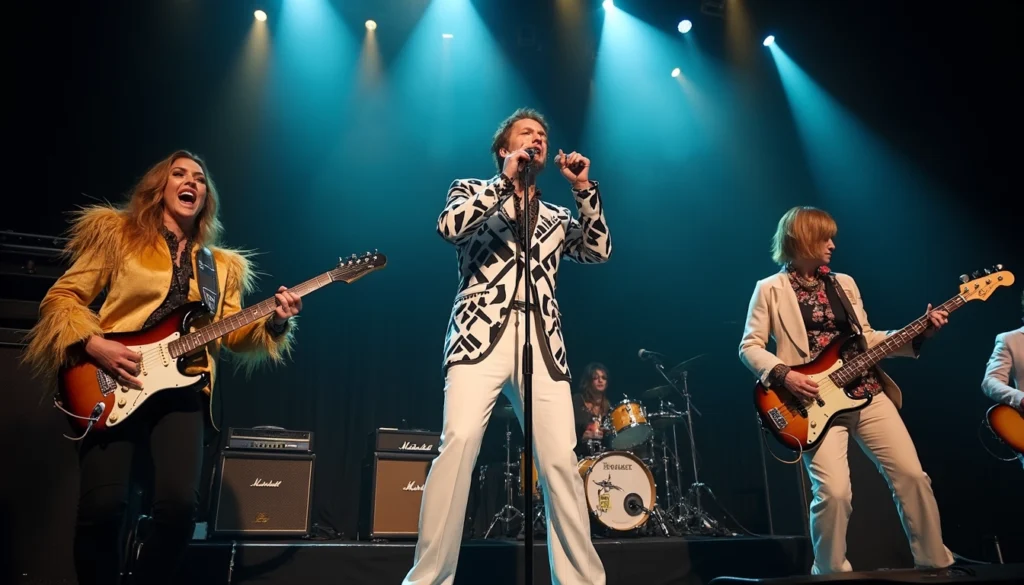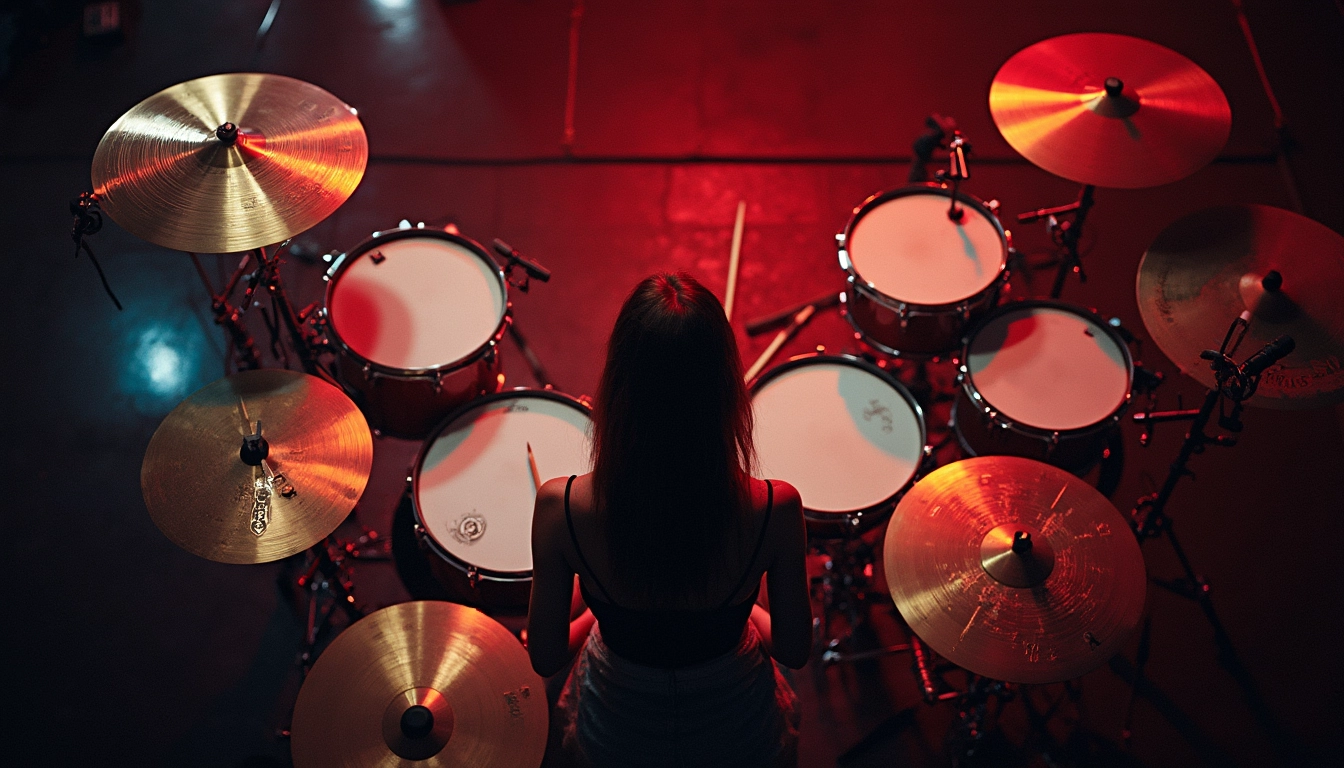Struggling with low ticket sales is a common issue for many events, and it can be frustrating when seats aren’t filling up as quickly as you’d like. If you’ve ever asked yourself, “Why aren’t my concert tickets selling?” you’re not alone. There are several key factors to consider that might be holding you back from selling out your venue, from reaching the wrong crowd to pricing issues. Let’s explore the top 5 reasons why concert tickets might not be selling and what you can do to fix these issues to help increase ticket sales.
1. Not Reaching the Right People

Who are you reaching and why?
Promoting Your Event to the Wrong People
One of the main reasons concert tickets don’t sell is that you’re targeting the wrong audience.
Many venues don’t have a clear idea of their ideal fan. They end up advertising to people who aren’t interested or who live too far away. This wastes resources and fails to generate sales. To maximize ticket sales, you need to narrow your audience to those most likely to attend.
Another issue is targeting the wrong locations. If you’re hosting a local event, promoting it nationally can be a waste while focusing too much on a small area for a bigger act can miss out on other potential buyers. It’s also important not to overlook niche groups of fans, those who gather around certain music genres online. These smaller groups are often more excited about events and more likely to buy tickets, but many venues miss out on reaching them.
Not Using Data to Find the Right Audience
You can also often miss out on ticket sales by failing to use the data available. Building lists from your email subscribers is a simple and effective way to reach people who already know your venue or have attended similar events. By analyzing past behaviors, you can segment your email list and focus on those most likely to buy tickets for similar events.
Additionally, using social media tools to find audiences with similar interests can help reach new potential attendees. Tools like lookalike audiences on platforms like Facebook allow you to connect with people who enjoy similar bands or genres, expanding your reach without losing relevance. This data-driven approach helps ensure your promotions are seen by people who are more likely to buy tickets.
Trying to Reach Everyone Instead of Focusing on Your Fans
Trying to appeal to everyone often leads to generic messaging, a strategy that fails to connect with the right people. Bear in mind: ads that feel like they’re for everyone end up feeling like they’re for no one. It’s better to focus on personalized messaging that speaks directly to your core fans—those who are most likely to attend and spread the word.
Additionally, not segmenting your audience by location, age, or interests can hurt ticket sales. For example, promoting a concert to a general audience might miss the mark if your event is more suited for a specific demographic. Breaking your audience into smaller, more specific groups allows for more personalized ads, which increases the chances of reaching people who will buy tickets.
Not sure if you’re reaching the right people? Learn how proper market segmentation can help you connect with the ideal audience and increase your ticket sales.
2. Not Promoting Your Event the Right Way

Consistent communication and compelling storytelling are the keys captivate your audience and drive ticket sales.
Not Sharing Information the Same Way on Different Platforms
A common mistake is not sharing key details consistently across platforms. Basic information should be clear and easy to find, no matter where people see your event. This includes everything, from your event posters to social media posts and online listings. If these details are missing, incomplete, or inconsistent across platforms, it can confuse potential attendees and hurt ticket sales. When people don’t have all the information they need, they’re more likely to lose interest. Clear, consistent details help build trust and make it easy for people to decide to buy tickets.
Here’s a checklist of basic information that should always be included when promoting your concert:
- Event Date and Time: Clearly display when the event starts.
- Venue Location and Full Address: Make sure people know exactly where to go.
- Ticket Purchase Link: Direct buyers to where they can easily purchase tickets.
- Performer or Lineup Information: Highlight who’s performing to attract fans.
Failing to Highlight the Experience, Not Just the Details
Even when clear details such as date and time are crucial, it is also important to remember that promoting an event is more than just stating the facts—you need to sell the experience, make it attractive. This means that your message should make people excited about the event by highlighting what makes it special, such as the performers, venue atmosphere, or unique experiences attendees will enjoy. Without a compelling message, people may overlook your event entirely.
Missing the Best Times to Promote Your Event
Timing is everything when it comes to event promotion. If you start too early, people may forget about the concert by the time it happens. If you start too late, not enough people will know about it in time. Therefore, you need to find the right time to promote so that people stay interested without losing track of the event.
However, you should also know that bombarding your audience with information too soon or too frequently can lead to oversaturation. The result: people may start ignoring your messages. This can be as harmful as not promoting enough. Likewise, waiting until the last minute can create a rush on your marketing efforts, making you spend more money on ads, putting unnecessary pressure on your team and potentially missing out on early ticket sales.
Not Getting Enough Attention Before the Event
One of the biggest reasons for low ticket sales is not having a clear plan for promoting your event. Building buzz early on is key to generating excitement and making sure people know your event is happening. This helps make sure people don’t forget about it.
Another issue is that your event may be competing for attention with other events. If there are multiple concerts or festivals happening around the same time, it’s even more important to have a solid promotion strategy to stand out, one which takes competition into account. Without it, your event could be overlooked, leading to disappointing ticket sales.
3. Not Being Seen Online

If people can’t easily find or engage with your event online, you risk losing out on ticket sales.
Your Website Is Not User-Friendly or Hard to Find Online
One major reason concert tickets don’t sell is that your website isn’t easy to use. If people find it hard to navigate your site or can’t figure out how to buy tickets quickly, they might give up and move on. A complicated or confusing ticket purchasing process can frustrate potential buyers and drive them away, costing you sales.
Another issue is not having a mobile-friendly website. Many people use their phones to browse and buy tickets. If your site isn’t mobile-friendly, you’re missing out on a huge audience.
Additionally, if your website isn’t optimized for search engines, it’s hard for people to find it. This means fewer people will know about your event, leading to low ticket sales. This is especially true if you rely on third-party sites to sell your tickets.
Social Media Isn’t Reaching Enough People
Is no secret that social media is a great way to promote concerts, but if you’re not using paid ads, your posts may only reach a small part of your audience. Posts that aren’t boosted by paid ads—often called “organic” posts—often don’t reach new potential fans, limiting your event’s visibility. Paid ads, on the other hand, allow you to target specific groups of people who are more likely to be interested in your concert, helping you reach a much larger audience.
Additionally, poor engagement metrics—such as low likes, shares, and comments—can cause your posts to be shown to fewer people. Social media platforms reward posts that get engagement by showing them to more users. If your posts aren’t getting much interaction, your visibility goes down, meaning fewer people will even know your event exists, which can lead to low ticket sales.
Struggling to get your event noticed online? Learn how to boost your event’s visibility and attract more ticket buyers with proven strategies. Discover how to make your event stand out online today!
4. Not Offering The Right Ticket Prices for Your Audience

Finding the right price is not easy.
Tickets Are Too Expensive for Most People
One common reason for low ticket sales is that the ticket prices are simply too high for most people. More than the actual price of the ticket, there’s often a lack of perceived value—meaning people don’t feel that what they’re getting is worth the price they’re paying. Also, sometimes prices are set based on an overestimated demand for the event, or they may be increased by high processing fees from ticket-selling websites. This can discourage potential attendees from buying tickets.
Finding the right pricing for your audience is crucial. Research what other similar concerts are charging to get a sense of what people are willing to pay. Setting your prices too high without understanding your audience’s budget can lead to empty seats. Making sure your prices feel fair and offer good value is key to filling your venue.
No Cheaper or Premium Options
Another problem is not offering different ticket prices. Some people might be willing to pay more for a premium experience, like special seating or VIP access, while others may be looking for cheaper, basic tickets. When everyone has to pay the same price, you might be missing out on both people who prefer cheaper options, as well as those who would pay extra for something special.
By giving people a reason to upgrade to a premium ticket, can help you sell more tickets. Additionally, making sure people know that there are only a limited number of these premium options can push them to buy sooner, as they don’t want to miss out on the chance for a better experience.
Not Offering Early Bird Discounts or Special Deals
Offering early bird discounts or special deals can help create excitement and drive early ticket sales. Releasing tickets in batches with different prices allows you to start with a lower price for early buyers and gradually increase it as the concert date gets closer. This approach rewards people who buy early and helps generate more interest in your event.
Missing out on these opportunities means you could be losing people who are careful with their money and don’t want to pay full price. However, special deals should be offered carefully—, such as when ticket sales are slow or to help kick-start the event with early sales. This way, you’re creating motivation for people to buy tickets sooner rather than later.
Wondering if your ticket prices are turning people away? Let’s talk about how the right pricing can help fill more seats.
5. Not Enough Excitement About Your Event

Spark excitement, build anticipation, and create urgency—when people can’t wait for your event and feel like time is running out, they’re more likely to buy tickets right away.
Failing to Build Excitement Before Ticket Sales Open
One reason tickets might not sell is because there’s no sense of anticipation before they even go on sale. People need to feel excited about your event before they’re ready to buy tickets. Using countdowns or special previews can build that excitement. If people see sneak peeks of what’s coming, like behind-the-scenes footage or artist interviews, they’re more likely to feel hyped up and ready to buy as soon as tickets are available. You can also create pre-event teasers that give potential attendees a taste of what’s to come, which can help keep the event on their radar.
Not Getting People in the Community Involved
Getting the local community involved may be key to boosting excitement for your event. Building a community of fans who are excited about your brand can help spread the word. People love to feel connected to a brand or event, and it is sometimes a good idea to post entertaining content that isn’t always focused on selling to engage them without feeling pressured.
Another option is to reach out to the community by partnering with local businesses or influencers to promote your event. If people see their favorite local brands talking about your concert, they may be more likely to attend.
No Urgency or Special Offers to Get People to Buy Tickets Sooner
Without a sense of urgency, many people often put off buying tickets until the last minute, or what is worse: not at all. This is why you should create urgency, by setting deadlines for special seats, discounts, or the best locations in the venue. When people know there are only a few good spots left or a deal is about to expire, they’re more likely to take action and buy their tickets right away.
Another missed opportunity is not using scarcity messaging—letting people know that there are only a few tickets left or that certain packages are almost sold out can push them to purchase sooner. In the end, the earlier tickets are sold, the more your venue can avoid last-minute rushes and ensure a full-house
Need help creating more excitement for your event? Find out how to get people interested and boost your ticket sales! Read more
Small Changes, Big Results: Unlock Your Event’s Full Potential
If your concert tickets aren’t selling as expected, it’s important to examine potential issues like your audience targeting, promotion timing, and pricing strategy. By addressing these key areas, you can increase ticket sales and create a successful event. Whether it’s building excitement or ensuring your promotions are reaching the right people, small adjustments can lead to big improvements!






